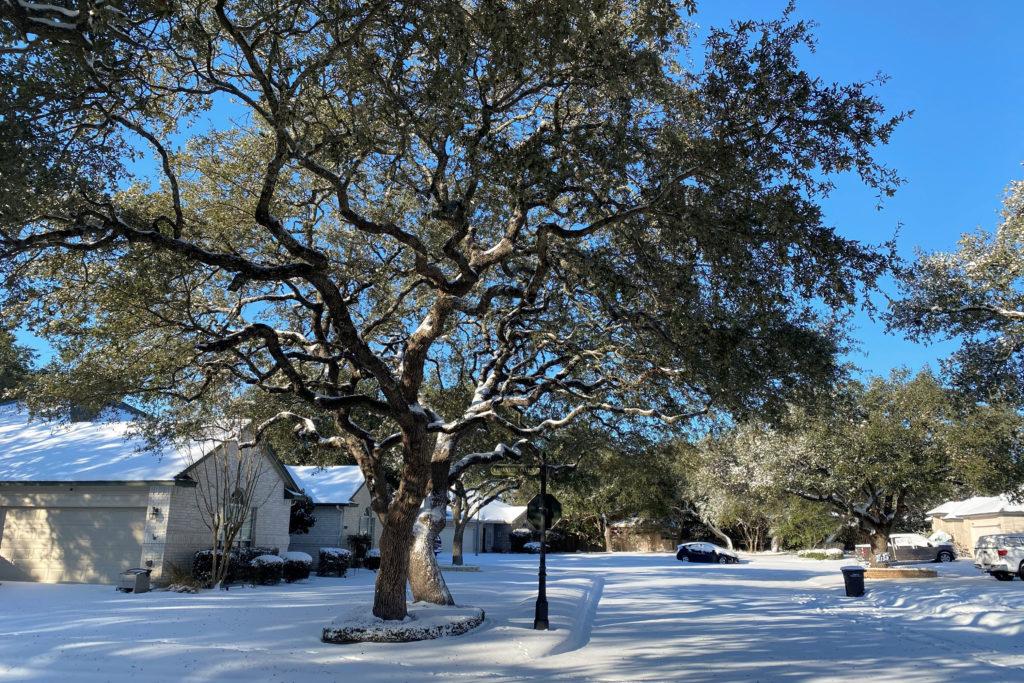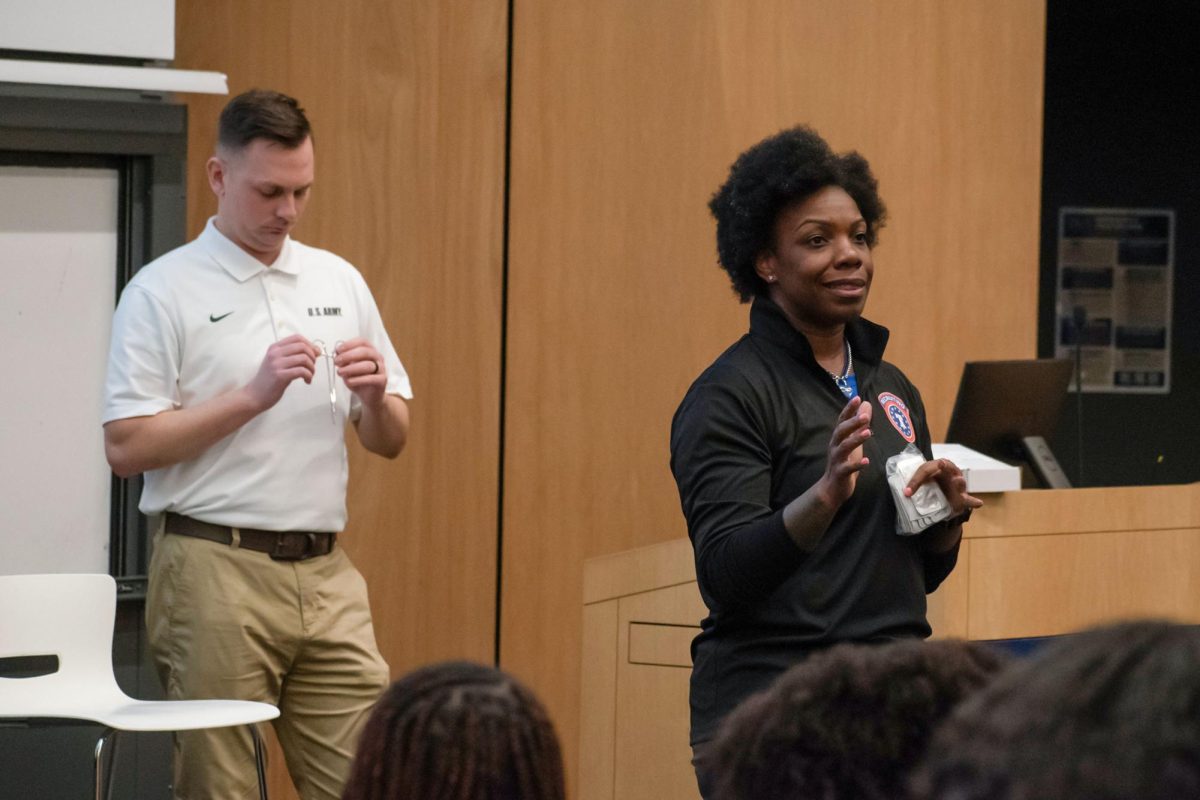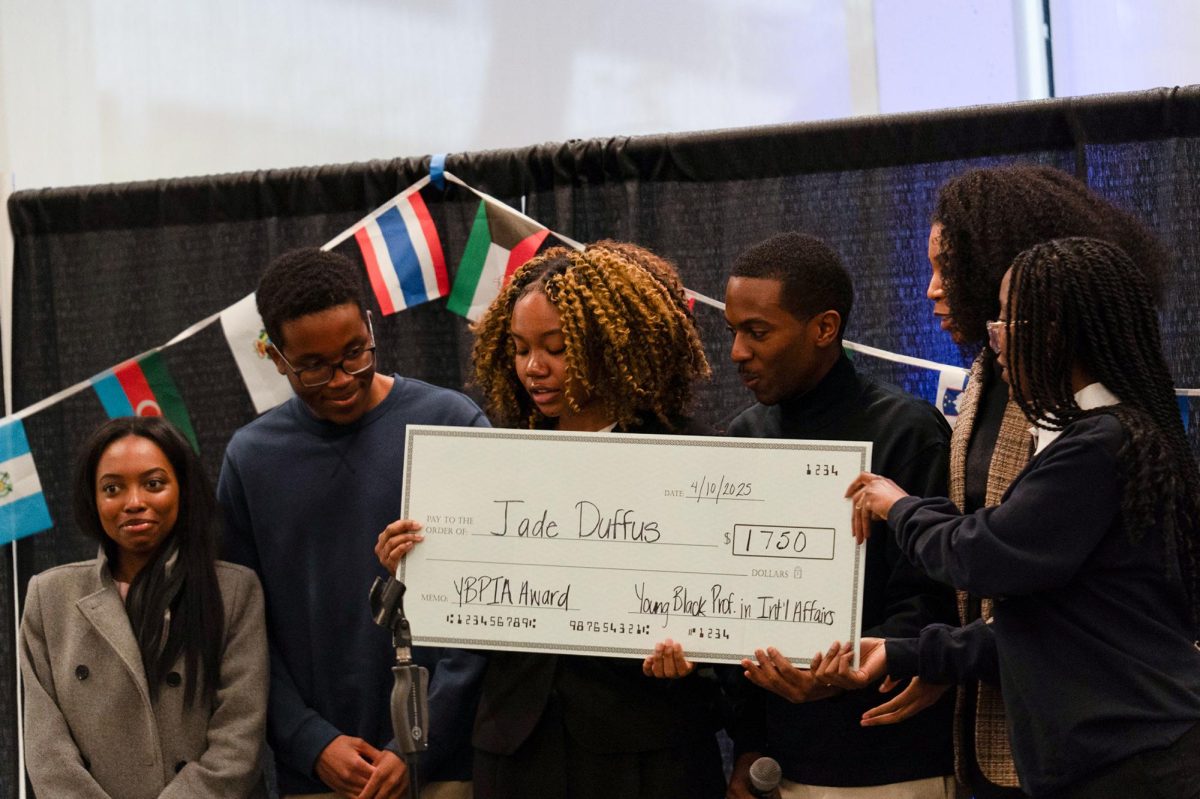For a few days two weeks ago, senior Denice Rios could only hope her home in Texas would receive internet power to charge her laptop and complete assignments.
Below-freezing temperatures reached her hometown near Houston, causing power outages and a lack of clean water for four days while the state initiated rolling blackouts to conserve energy and prevent Texas’ power grid from failing. Rios said she fell behind in classes during that time because she couldn’t always charge her technology or connect to the internet for class.
“I felt really helpless because there’s really nothing we can do without internet power,” Rios said. “And then the day is getting darker, faster because it’s really cold. So there were very limited things that we could do.”
Rios is one of five students currently taking classes remotely in Texas who said they went without heat, power and water for multiple days as the state experienced unusually strong winter storms and widespread power outages. Students said their professors accommodated their situations by offering extensions and emotional support as students focused on staying safe and warm throughout the week.
Sophomore Anushka Hassan, an international affairs major taking classes in Houston, said the power in her house turned off and on for three days after Feb. 14. On the first day, she got power back within two hours, but it shut off soon after and did not turn back on for three days, she said.
She said her family went without heat, power and water, which left her drained and unable to stay on top of her work as her focus turned to staying warm.
Hassan said she had to keep her windows shut and huddle close to her gas fireplace after her house dropped to 40 degrees. She said she emailed her professors to alert them she would be absent from class because of the power outages, but some asked if she could use her phone as a hotspot to log in.
She said she felt like her professors were understanding overall, but she would not have had the energy to attend class during the storm had she had power.
“It was really hard to stay warm because the fireplace is only so big and it’s in the middle of our living room, so we just did our best shutting the windows,” Hassan said. “My room was intolerable because it has a really big window and it’s at the front of the house, so I just really didn’t spend any time in my room.”
Junior Lucas Miller, a Middle East studies major and Hatchet photographer taking classes from home near Austin, Texas, said he was about to log into one of his classes on Feb. 11 when the power cut off. He said he was still able to attend that class through his phone but had to keep it plugged into a portable charger because he could not charge it through any outlet.
Miller said the next few days were “stressful” between communicating his absences to professors during the “infrequent” periods he could get service.
“It was pretty difficult just trying to make sure that the email actually went through,” Miller said. “I couldn’t access Blackboard or do any coursework really that needed internet access.”
Miller said before the snowstorm, his family had never turned on their fireplace, but his entire family huddled around it for three days and “rarely” left the living room.
“I was nervous, just because we’re not used to having freezes that last more than a day or so,” Miller said. “So I was just completely unaccustomed to anything like that. And I was also just thinking about people who don’t have homes, and things like that, that live around here.”
Sophomore Sofia Packer, who takes classes in Woodland, Texas, said she had been in the middle of a Student Association diversity and inclusion committee meeting when her power suddenly shut off. All power lines were shut off in her neighborhood, leaving her disconnected from her peers and the rest of Texas for 14 hours, she said.
She said Woodland is separate from the Texas power grid, located on the eastern power grid, meaning her family did not experience the same rolling outages as other cities. She said she spent the rest of the week concerned that another power outage would happen at any time.
Packer said by last Sunday, Woodland was returning to its normal warm temperatures.
“The timeline was the snow really started hitting Monday – it stuck through Tuesday,” Packer said. “And then it started going away on Wednesday because we had a rain that was just above freezing. And then by Friday, it was completely gone.”
She said all of her professors were “fully understanding” of her situation and offered to waive any potential absences after she warned them of the power outage. She said she did not have to miss any classes but had “nothing but praise” for how her professors handled the situation.
“The temperature drop was rather dramatic,” Packer said. “It first started getting cold over the weekend, before all of the power outages and all that. And then it really plummeted down to some of the coldest temperatures I think we’ve ever had.”








